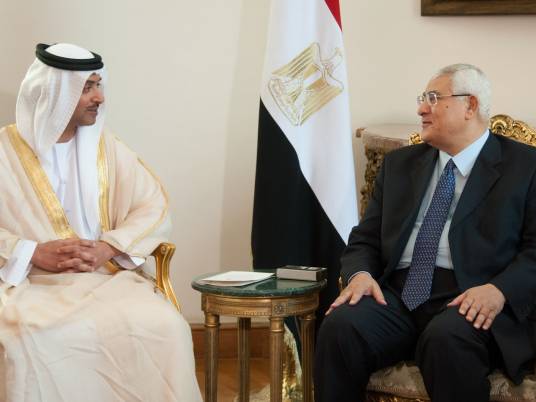
We may not like it, but Egypt desperately needs Gulf money.
So why not change the way the Gulf lends money to Egypt to make it count. It won’t be just about wasting away cash to address a symptom without resolving the underlying problem.
Indeed, without Gulf aid, the government would have struggled to pay for vital imports and would have fallen far behind on its supply of fuel, prompting nationwide riots and unrest. The pound would have depreciated rapidly in the absence of sufficient central bank deposits and would have been worth closer to LE7.5 or LE8 to a dollar instead of LE6.89.
Egypt had no-one else to turn to.
International donors, including the likes of the International Monetary Fund, the World Bank and the African Development Fund, had too many strings attached for far less money to make it worth while for Egypt. These organisations also promised a whole lot of interference (or as they call it “technical expertise) into economic policy-making – another unpopular prospect for the foreign-wary Egyptians.
Meanwhile the Gulf was a perfect lender to Egypt. It has acted more like a generous Uncle, pouring money (and petroleum products) into Egypt’s coffers whenever needed and with few questions asked. As long as the Muslim Brotherhood are out, the Saudis are in.
But beyond throwing money at the problem, the Gulf has done little in the way of long-term restructuring in Egypt. They’re not interested in reforms and overhauling the tax system, but wielding control in the most populous Arab country and leverage over the Brotherhood.
Though the Gulf can afford to keep playing this game, Egypt can’t.
The government has been given too much free rein with more than $12 billion in cash and oil. None of that has gone towards supporting the budget deficit, or towards reforms that will benefit the lives of millions of Egyptians.
Adly Mansour’s government, or more likely the government that follows after elections, should consider making the most of connections with the Gulf by striking deals in infrastructure and energy.
Rather than just taking money to plug holes that will reappear in a few months time, Egypt would do well to get the same money siphoned off into long-term investment projects.
There are many avenues for joint ventures: Egypt’s factories, the bread and butter of the industrial sector, are shutting down because of difficulty securing loans in the credit market.
Low-income residential projects to house thousands of Egyptians living on-top of one another in Cairo has stalled as contractors struggle to find the funds to keep working.
Labour-intensive infrastructure projects, on roads, railways, water and sewage treatment plants, are in desperate need of investment.
Egypt’s interim government boasted about launching a $3.2 billion “economic stimulus plan” yet very little has been said about reinforcing ties with the Gulf, which is surely the easiest way to implement such a “stimulus plan”. The only mention of Gulf investment is a possible agreement with the United Arab Emirates to finance medical projects and 10 wheat silos.
But that is not enough. There should be a full-scale collaboration with Gulf countries, not only to benefit Egypt, but to show the international community that the money is working hard for the nation.
This story originally appeared on Rebel Economy
Farah Halime is the editor of Rebel Economy, a blog focused on how Middle East economies are rebuilding after the Arab Spring




